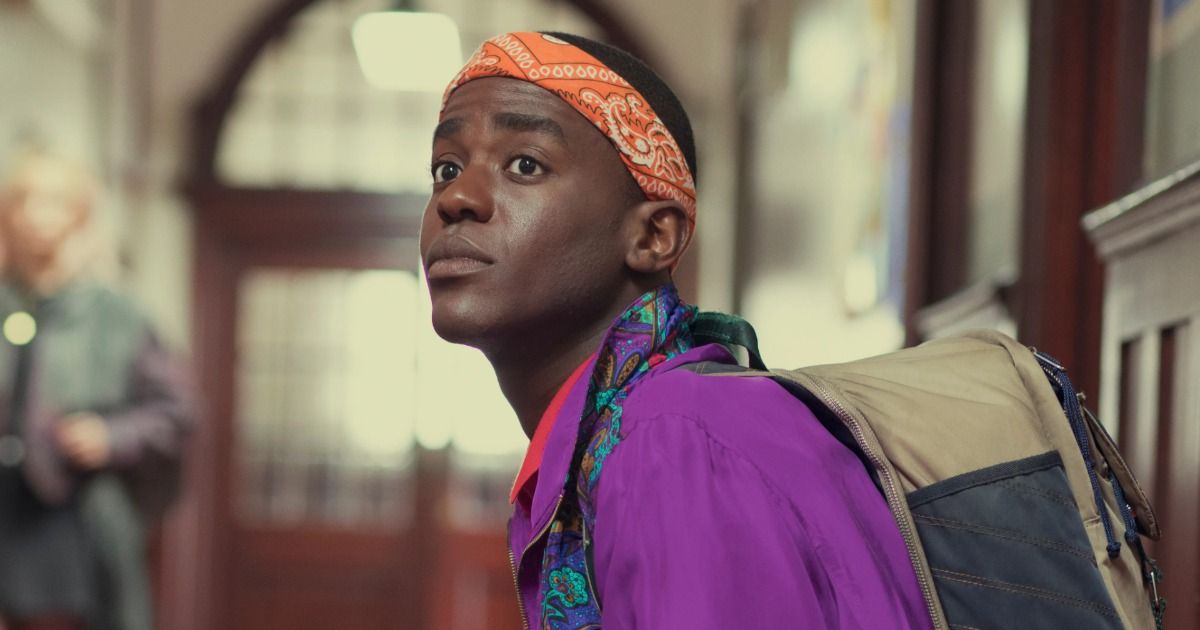#The Italian Box Office Success Sparking Discussion About Domestic Violence

There’s Still Tomorrow, the new film that has just passed Greta Gerwig’s Barbie to become the most-watched movie in Italy this year, opens on a domestic scene. Delia, played by actress-turned-director Paola Cortellesi, wakes up next to her husband, Ivano (Valerio Mastandrea). “Buongiorno!” she says, brightly. Without a word, he slaps her. Hard. Then, as the soundtrack swells with a 40s romantic tune, Delia gets up to start her day. Violent abuse, it appears, is as much a part of her routine as brushing her hair and getting dressed for work.
It’s a shocking scene. At first, it looks like There’s Still Tomorrow, shot in stark black-and-white, will be a tribute to Italian neo-realist classics like Bicycle Thieves and Rome Open City. But this is no kitchen sink social drama. First come the one-liners: “All the problems started when people stopped marrying their cousins!” Ivano’s father-in-law complains to Delia. “My wife lived like a queen!” Delia reminds him she killed herself by jumping from the fifth floor. “And rightly so,” she adds, wryly.

Courtesy of CLAUDIO IANNONE
“As a child, I remember the stories my grandma and great grandma would tell me about other women who lived in the same courtyard in their neighborhood, women like Delia who would be subjected to violence, maybe be beaten up by their husbands or relatives,” says Cortellesi. “What shocked me was how this tragic thing was considered to be normal. For these women, it was daily life. But they always tell these stories with a touch of irony, of humor. It’s a Roman thing, we people from Rome, even when we talk about the most tragic events, we tend to tell them with a smile and a joke.”
As Delia leaves her home, the screen, till then tightly cramped in the 4:3 aspect ratio typical for neo-realist movies, expands to a widescreen 16:9. The 40s soundtrack gives way to the rocking beat of 1998’s “Calvin” by the Jon Spencer Blues Explosion.
“This is a contemporary movie. It’s set in the past, but it’s about the female condition,” says Cortellesi, “and the roots of this patriarchal culture go deep. They are rooted in the past, but they are still very present today.”
The film has certainly struck a chord. There’s Still Tomorrow is a runaway box office hit, grossing more than €30.5 million ($33.4 million) to date, making it the second most successful film of the year in Italy, just behind Gretta Gerwig’s pink-themed blockbuster Barbie at €32 million. Ranked by admissions, There’s Still Tomorrow is actually number one, with 4.49 million tickets sold to Barbie‘s 4.39 million. Cortellesi’s film is already the 6th most successful Italian movie of all time and, by the end of its run, will leapfrog Roberto Benighi’s Life Is Beautiful (1997)—another period film that mixed comedy with serious drama —to take the overall number 5 spot.

Courtesy of Luisa Carcavale
There’s Still Tomorrow has also rekindled discussions about domestic violence, femicide and women’s rights in Italy, debates that dominated public discourse since the shocking kidnapping and murder last month of the 22-year-old student, Giulia Cecchettin, and the arrest of her boyfriend for the crime.
“I’ve been attending screenings, introducing the film and talking about it with the audiences afterward, and people come to me and they share their stories of violence of abuse, or just discrimination, unfair treatment,” says Cortellesi. “There’s this wish and desire to discuss a subject that was just there waiting to be talked about. This movie kind of triggered the debate.”
On November 25, the film was shown in the Italian Senate to mark the United Nations’ International Day for the Elimination of Violence Against Women. There have been screenings for schoolchildren across the country.
“To date around 300,000 high school students have gone to see the film,” says Andrea Scrosati, Group COO and CEO, Continental Europe at Fremantle, the media group which owns Wildside, the Italian producer of There’s Still Tomorrow. “Schools are using it as a way to discuss domestic violence and female empowerment,”

Courtesy of CLAUDIO IANNONE
They are subjects, says Cortellesi, she has been “revolving around” her entire career. One of Italy’s most famous, and beloved, film and TV stars, she cut her teeth as a comedian on radio and TV, doing impressions of politicians, celebrities and musicians, before shifting to the big screen, writing and acting in some of the country’s most successful rom-coms and family dramedies. Her films, many directed by her real-life partner Riccardo Milani, are mainstream entertainment that, below the surface, tackle difficult issues, including social disparity, domestic abuse and Italy’s staunchly patriarchal culture.
There’s Still Tomorrow is packed with situational comedy and sight gags — a romantic interlude involving chocolate-smeared teeth is particularly sweet — and even a show-stopping musical number. But the laughs are always in service of a deeper social message. An early scene in the film shows Ivano laying into Delia after a perceived slight. The beating is staged as a dance, with both partners going through the motions, reenacting a pattern passed down from generation to generation.
“Paola is one of the most sophisticated and intelligent but also empathic artists around,” says Scrosati. “She’s addressed relevant issues, political issues her entire career, but she’s never lecturing.”
Delia is not some idealized feminist. At the start of the film, all she wishes for is a good marriage for her daughter and is saving up money for her wedding dress. Ivano, despite his violence, is shown as pitiful, and comicly stupid. Less a monster than a buffon.
“We wanted to make him an idiot so that there would be no risk of anyone idealizing or imitating him,” says Cortellesi. “It’s a way of exorcising the fear of the monster. When you laugh at someone’s stupidity, your fear of them disappears.”
There’s Still Tomorrow is set against a particular political history. It is set in 1946, ahead of a referendum where Italians were asked to vote to remain a monarchy or to become a republic. For the first time in the country’s history, women were given the vote. The politics bubbles along in the background — there are posters and graffiti, characters toss off lines about democracy and socialism — but even local audiences, says Scorsati, overlook the history and get caught up in the story of Delia’s emancipation.

Courtesy of Luisa Carcavale
“Actually, the movie is a bit of trick, a fraud,” says Cortellesi. “We plant clues throughout the movie but because we use these different genres, the romantic comedy, a bit of thriller, a bit of musical, people focus on Delia and start thinking, like all those other movies, that she’ll be freed by another man, a good man.”
It’s only by the end, she says, that audiences realize There’s Still Tomorrow is a love story, “but it isn’t about romantic love, it’s about the love of a mother towards her daughter…I wanted to tell this story for my daughter, who is 11 now, and for the kids of her generation,” says Cortellesi.
The film’s success has transcended local politics, with both Italy’s far-right government and the left-wing opposition joining in the debate around domestic violence the movie has sparked.
“It has nothing to do with politics, but with people being fed up with the current situation, where a woman in Italy is killed every 72 hours just because she is a woman, killed by her boyfriend or partner,” says Cortellesi. “This isn’t a new statistic, but one that’s been constant through different governments, left and right. People are fed up of hearing this same story over and over again. They want to do something to help change the culture. To break this circle of violence.”
If you liked the article, do not forget to share it with your friends. Follow us on Google News too, click on the star and choose us from your favorites.
For forums sites go to Forum.BuradaBiliyorum.Com
If you want to read more Like this articles, you can visit our Social Media category.



